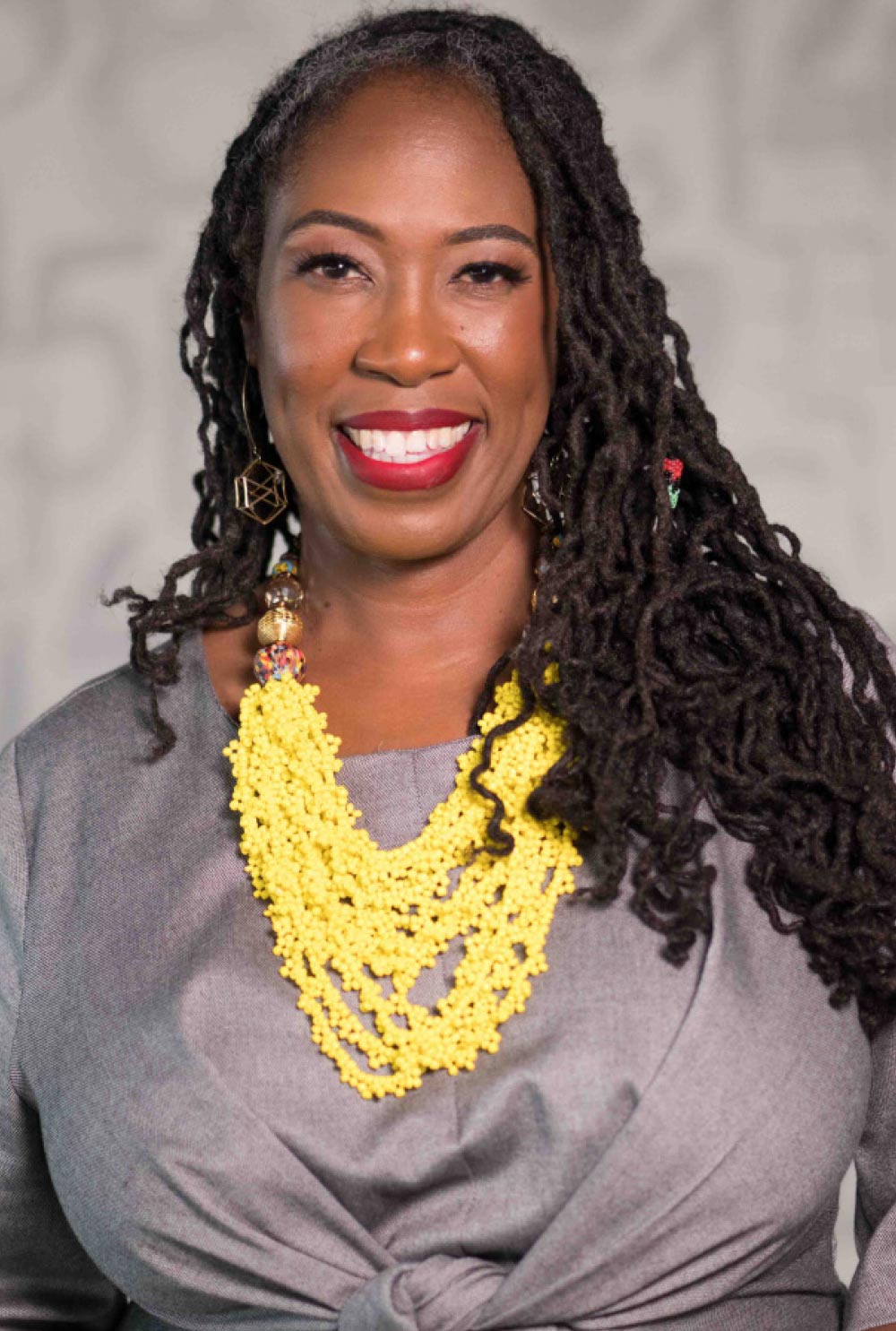he murder of George Floyd on May 25, 2020, ignited a cultural conversation about systemic racism that continues to echo around the country. As the national reckoning endures, Damon J. Keith Center for Civil Rights Director Peter Hammer recognizes that this is a critical time to confront an American foundation built on a series of injustices.
“The Keith Center views structural racism as our generation’s civil rights challenge,” said Hammer, who has led the center since its inception.
For 10 years, the Keith Center has worked to amplify the educational, economic and political power of underrepresented communities in urban settings. With a focus on Southeast Michigan, the center champions civil rights issues to promote the legacy of its late namesake, the Honorable Damon J. Keith, LL.M. ’56.
In 2014, thanks to an initial $1.3 million grant from the W.K. Kellogg Foundation, the Keith Center launched a new program: the Detroit Equity Action Lab. Known as DEAL, the community-driven research hub — which the Kellogg Foundation has since renewed with a $2.4 million grant — offers a platform for those working at the ground level in Detroit in different areas of racial equity (think health care, education, food security, housing) to identify long-standing issues.
“If you’re going to be fighting structural racism, you have to do so in partnership with the people in the community,” said Hammer. “DEAL was really an effort to be engaging those people doing racial equity work from the front line, and imagining how we can align with them to build their capacity, learn from their experience, and try and enable a decentralized network of racial equity actors.”
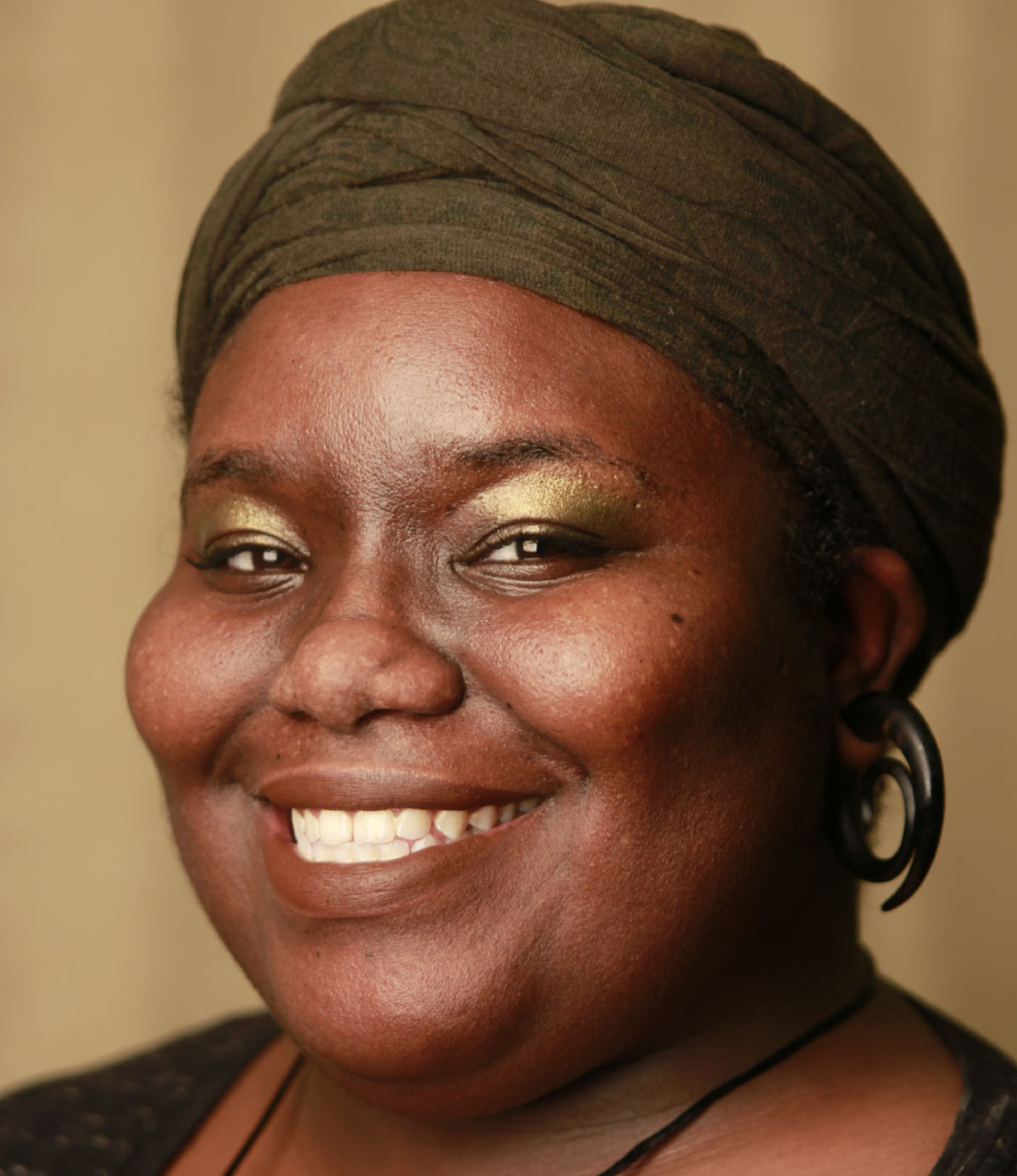

 My vision for DEAL is to be an example to organizers and organizations across the nation who are trying to address structural racism. Our fellows are people who are on the ground, who have creative solutions and who have been working on issues.
My vision for DEAL is to be an example to organizers and organizations across the nation who are trying to address structural racism. Our fellows are people who are on the ground, who have creative solutions and who have been working on issues. 
“We’ve come to a place where we have a solid understanding of the arc of things we want to teach,” said Chester-Bey, a DEAL 3 fellow who, at press time, was planning the curriculum for the DEAL 6 cohort, scheduled to begin meeting in winter 2021.
Among the topics planned for this year’s cohort of fellows are structural racism 101, white supremacist culture, personal lineage, ancestral lineage and ancestral connection to liberation work.
“We start to move toward thinking about co-liberation and multiracial coalition-building, and what collective action looks like,” said Chester-Bey. “The intention is that fellows can rely on each other as co-liberators in the work that they’re doing, and hopefully some collaboration arises out of the program.”
Chester-Bey frequently meets with the three designers to envision themes for each cohort’s curriculum, working to enhance material and make necessary adjustments to empower fellows as they learn skills to fight racism.
“There is an art to some of this work,” said Islam Anani, a DEAL 3 fellow who began working as a facilitator of the fellowship with the DEAL 4 cohort. “There is a creative aspect to how we are reconstructing the space and then what we are designing for the fellows — what experience we are really leading them through, and what they are leading us through sometimes.”
A licensed attorney, Islam Anani — who co-founded the Muslim Anti-Racism Collaborative (MuslimARC) in 2014 — has a background in human rights, education and training (“My area of interest,” she noted, “has been very much tied to walking back the process of dehumanization, so once people get to that place where they’re dehumanizing other people, how do we prevent them from getting there?”).
“Part of our role is to craft this journey for the fellows throughout the year, thinking about the trajectory of the arc and the experience that we want to take them through — the substantive material that we want them to learn,” she said.
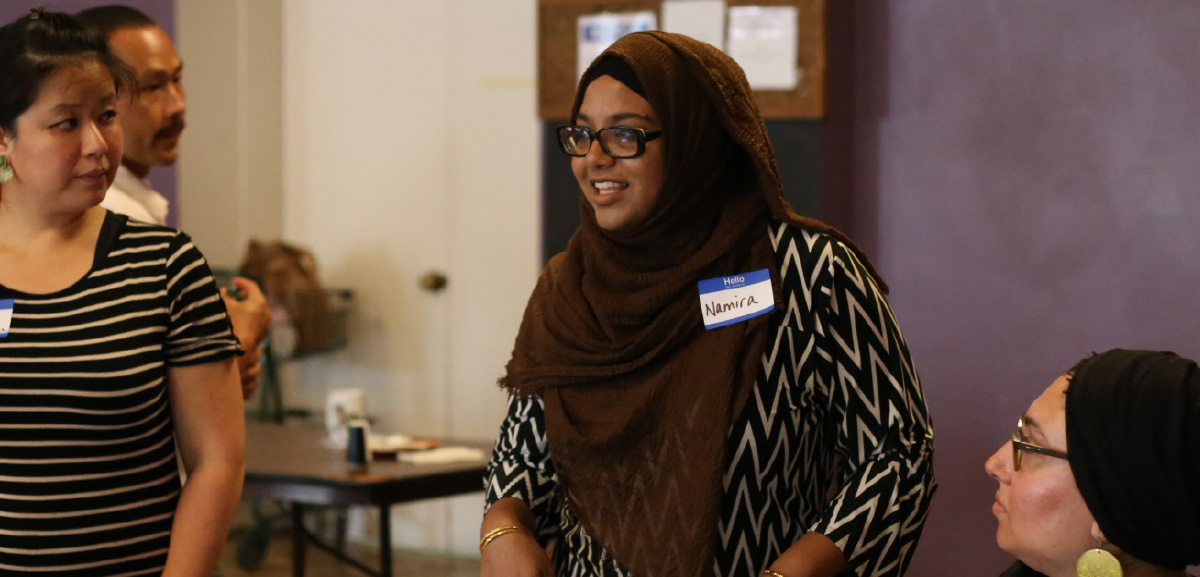
“I see part of my role as connecting people, resources and ideas,” said Bernardo, a DEAL 2 fellow who also began facilitating with the DEAL 4 cohort. “A lot of our work is focused on leadership development, but also healing from our own clashes with structural racism and white supremacy, and creating an environment where we can do that together.”
A lifelong Detroit resident, Bernardo began doing anti-racism work nearly a decade ago under the mentorship of the late Mama Lila Cabbil, DEAL’s former fellowship director. He was inspired to co-found the social movement Food as Healing following the death of his father to chronic illnesses of diabetes, obesity and heart disease.
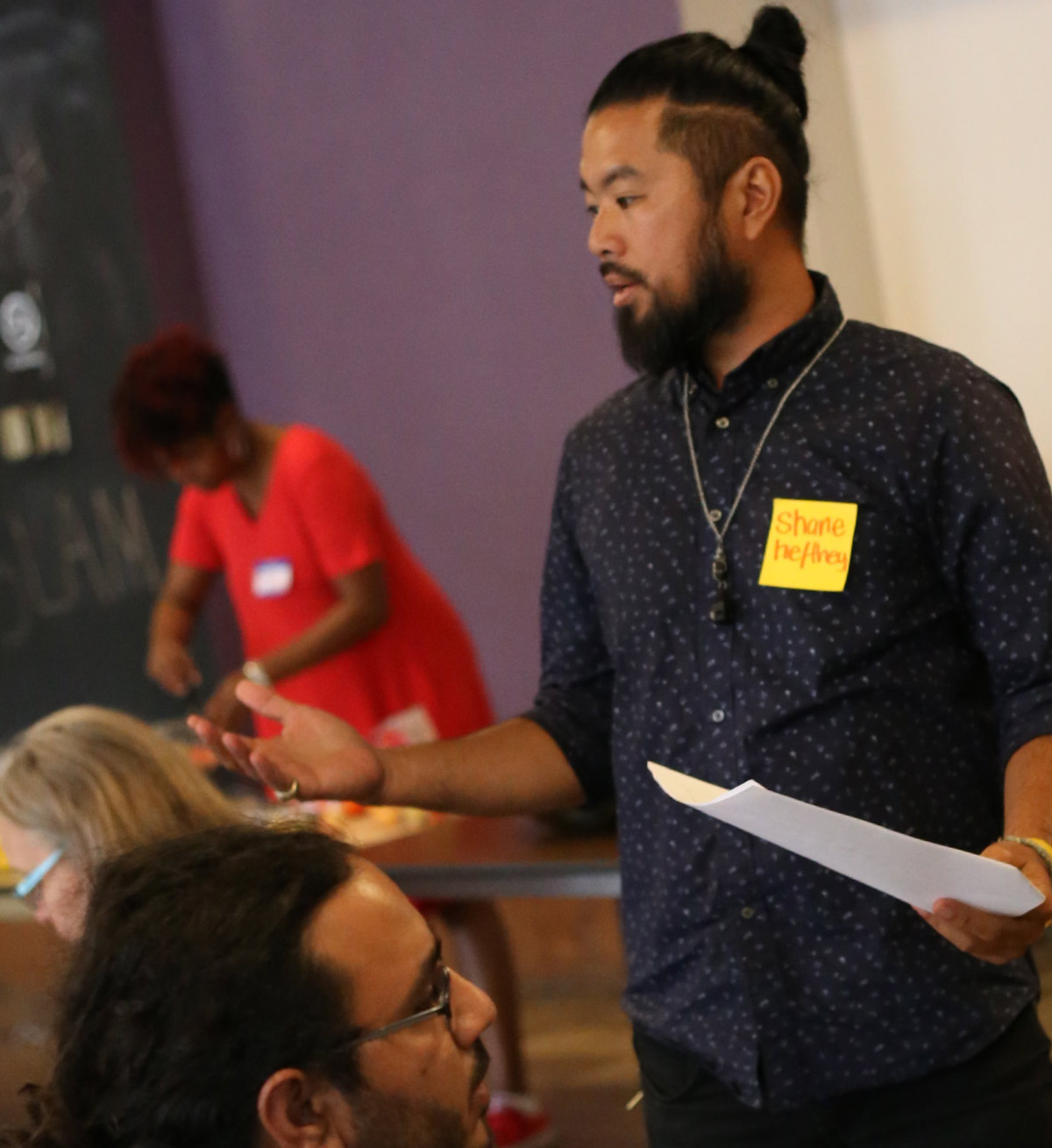
Bernardo observed that his role as a designer and facilitator for the fellowship is an iterative one that involves layers of relationships.
“To address things like structural racism and other systems of oppression, we have to look at our own personal journeys around healing because we can only go as deep as we are willing to go ourselves,” he said. “It strikes a balance between the collective work that we’re doing together, and the personal work that we need to do around healing.”
Shortly after the DEAL 5 cohort’s first session took place in March 2020, DEAL’s fellowship program went completely virtual in response to the ongoing coronavirus pandemic. Each month, fellows meet for a five-hour session held on Zoom — which isn’t without its challenges.
It’s heavy work, holding conversations about race in the 21st century. But as she recalls a lightbulb moment while working on a knowledge-power analysis exercise with fellows in a past cohort, it’s abundantly clear how much Chester-Bey relishes her role in creating a supportive space for fellows.
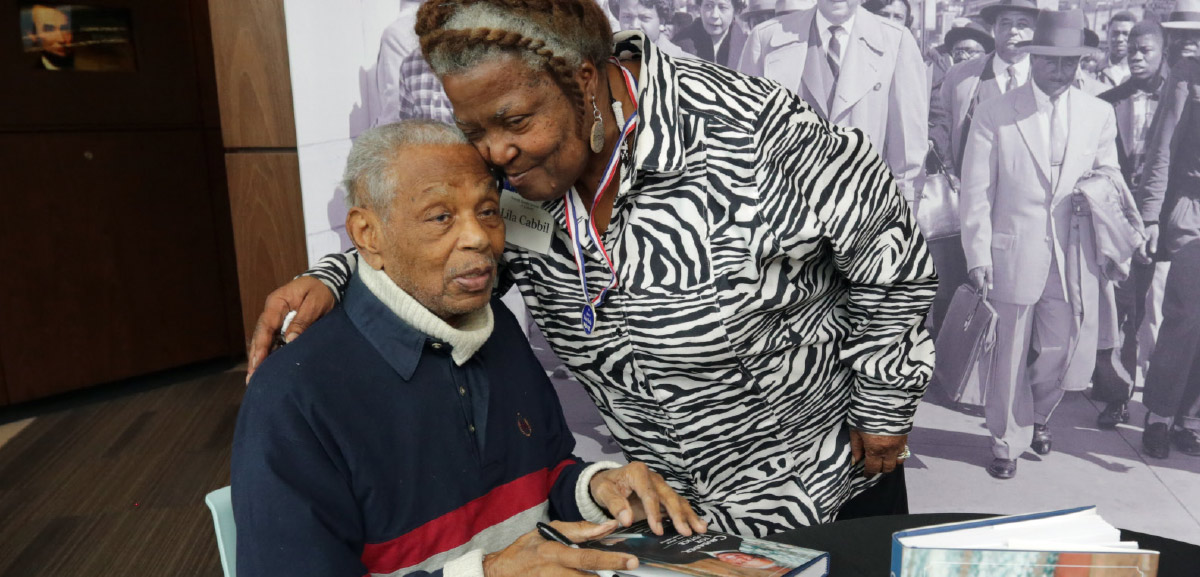
“The whole point is to empower them to do their work,” he said, “and they take these tools back — often in a more collaborative manner than they did before — and apply them in real time. The fellowship is one aspect, but it’s deeply connected to addressing the most important issues that are affecting the city.”
And, as Chester-Bey observes, that is key to the equitable action component of the fellowship experience.
“We are building the capacity of people to act,” she said. “We want to have a network of people all throughout the city that know how to take action on equity issues, so the lab is where you stir things up and start to ask the questions and do the experiments so that when you go back to your organization, back into your neighborhoods, you can engage in actions that promote racial equity.
“Internally,” she continued, “the action is to be active with the learning — to treat it as a practice space to put things together, so the action is being with other people from other backgrounds and figuring out how to enact the things that you learn in the fellowship.”
And that means taking time to reflect on the past to truly move forward.
“We really have to contend with the laws and history of this country and how we got to this place that we’re in,” said Chester-Bey, “figuring out how we got here on a deeper level so that we can find solutions. We usually have more questions than we have answers, but this system wasn’t created in a day, and we won’t create a new way of being in a day either.”
“Detroit is often used as a lab for racial injustice, as a city that is majority Black that has the highest population of Middle Eastern folks outside of the Middle East,” she continued. “Between the schools, the water, the privatization of our public assets … those things have been tested in Detroit and then moved on to other places.”
That’s why she remains so committed to deepening the fellowship within DEAL first.
“My vision for DEAL is to be an example to organizers and organizations across the nation who are trying to address structural racism,” said Chester-Bey, who was joined by DEAL Director Asandi Conner (see sidebar) in fall 2020. “Our fellows are people who are on the ground, who have creative solutions and who have been working on issues.
“DEAL can be the convener to connect people to work with the grassroots, bring the grassroots together to address structural racism as a whole rather than singular issues, and see the connection between issues of structural racism,” she continued, “and be a place where you can have a practice space for how to build multiracial coalitions, how to build co-liberation and how to build collaboratively around addressing structural racism.”
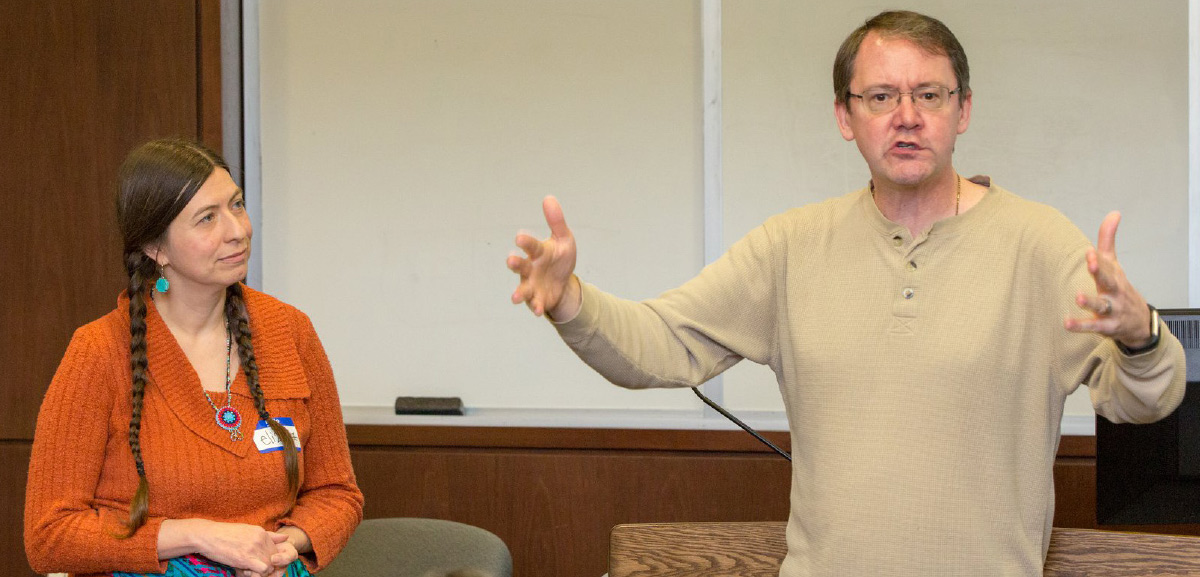
 DEAL is an effort to be engaging people doing racial equity work from the front line, and imagining how we can align with them to build their capacity, learn from their experience, and try and enable a decentralized network of racial equity actors.
DEAL is an effort to be engaging people doing racial equity work from the front line, and imagining how we can align with them to build their capacity, learn from their experience, and try and enable a decentralized network of racial equity actors. 
“We’re on our way to being a premier fellowship program with a national reputation doing cutting-edge work on racial equity and structural racism,” he said. “The parallel work we need to be doing is to be strengthening the connectivity of the network and creating opportunities once they complete the fellowship to get ongoing training and support, as well as imagining how we can better connect fellows across cohorts that are working on complementary issues.
“Doing racial equity work is a profession and is its own expertise; it’s not something you pick up on the side or do on the weekends,” Hammer continued. “Rhi has devoted her life to this, and it’s an amazing skill set to be thinking about curriculum design, facilitating this vision. We have to lift up this work as an expertise like we lift up other areas of expertise and recognize that this is probably the most important work that any of us can be doing at this time in our history.”
We answer the question:
What is racial equity and how do we achieve it?
We answer the question:
Who is doing the work and how can we take action?
We answer the question:
What are our stories that are not being told?

